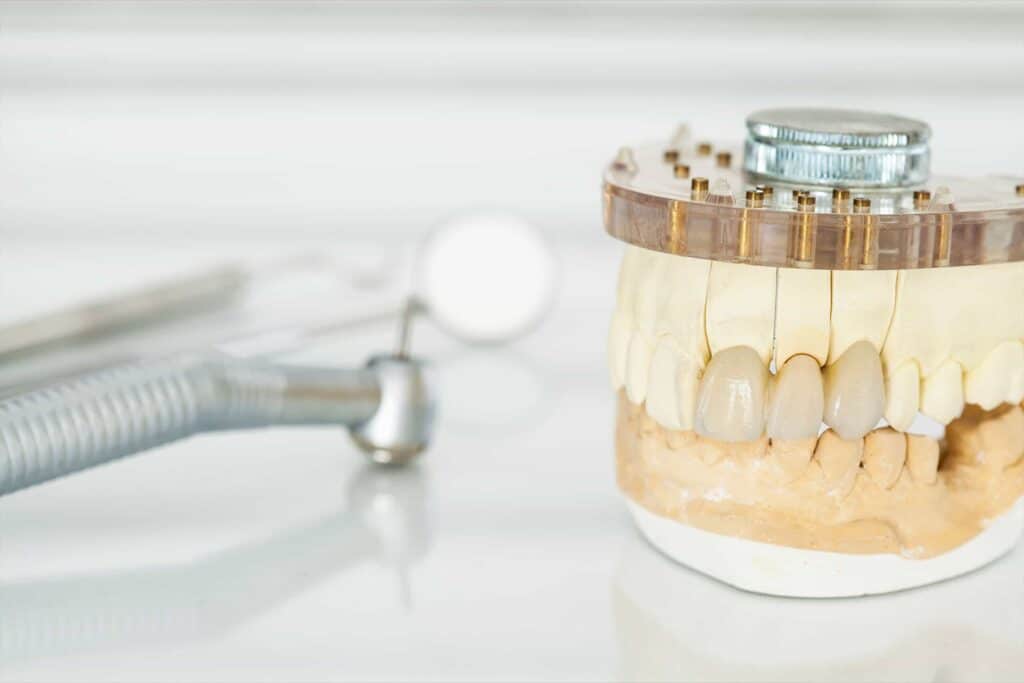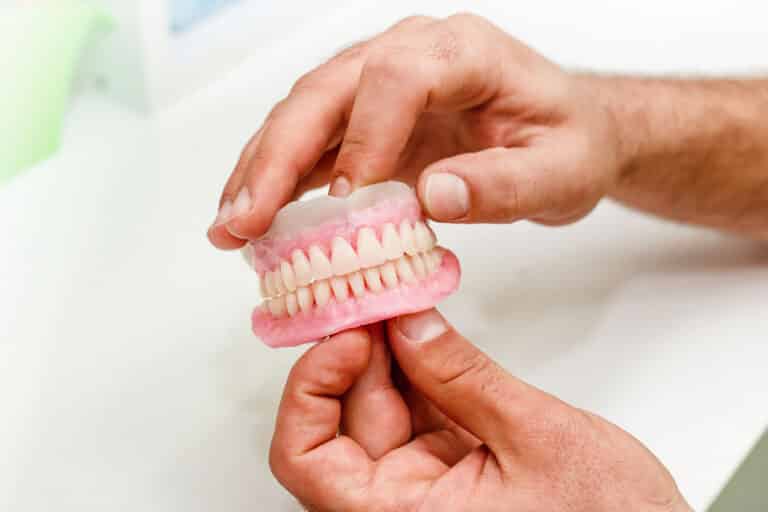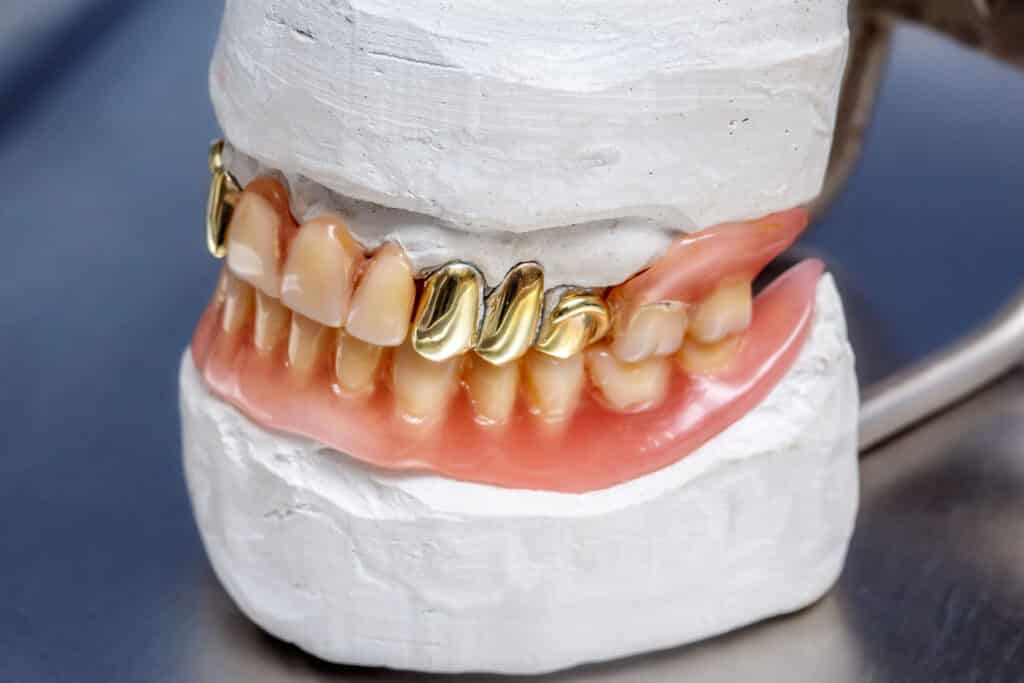There are many varying factors regarding babies and their teeth, primarily when discussing at what age babies might start to teeth or cut their first tooth. Parents must remember that all babies are different, but having a general guide to reference doesn’t hurt.
This article will discuss everything you need to know about baby teeth, from when you can expect your baby to start teething to what you can do to soothe them. Let’s get started!
What Are Baby Teeth?
Baby teeth, officially named deciduous and often referred to as milk or primary teeth, begin to develop in the embryonic stage of pregnancy, meaning they are already present in the jaws at the time of birth. However, baby teeth typically do not start to come in until somewhere around six months after birth. There are usually 20 baby teeth, ten on the top and ten on the bottom.
When Do Babies Start Teething?
Any parent will tell you that teething can often be a source of significant stress during babyhood. Teething can be painful, causing fevers, runny noses, and an overall feeling of misery for both child and parent!
Babies start teething at different times, but parents can typically expect baby teeth to begin erupting around six months, however they can erupt as early as three to four months all the way up to a year or two. Most babies will follow this schedule, but parents must remember that all children are different, and there is no strict development schedule regarding teeth.
Can Babies Be Born With Teeth?
Babies can be born with teeth, though they don’t come out of the womb with the complete set you might be picturing. Instead, some babies are born with teeth called natal teeth.
While natal teeth seem like a mystery, specific conditions could increase the odds of a baby being born with natal teeth. We occasionally see natal teeth in babies born with a cleft lip or palate. A few underlying medical conditions may contribute to the forming of natal teeth, which your pediatrician can rule out or confirm.
Keep in mind that natal teeth have a fragile root and will not be thoroughly developed. They’re also relatively uncommon and the teeth themselves are typically not something to be really worried about.
How Do I Soothe A Teething Baby?
One quick internet check will tell you more than you need to know about soothing a teething baby, from whiskey on the gums to modern solutions like Orajel. Please note that whiskey is not the answer and you must speak to your pediatrician before administering any medications.
If you’ve noticed any of the following symptoms in your normally happy baby, it’s probably time to make a soothing plan.
- Crying and fussiness
- Swollen gums
- Slight fever
- Gnawing or biting down hard
- Excessive drool that can result in a rash
- Cheek rubbing or hair pulling
- Constant hands in the mouth
- Changes in sleep or eating patterns
When it comes to soothing a teething baby, what works for one may not work for another, but there are a few options you can test out to determine what will work best for your little one. Consult with your child’s pediatrician prior to treatment.
- Give your baby something cold, like a pacifier, spoon, wet washcloth, or a solid, refrigerated teething ring or toy. Make sure the toy doesn’t have any liquid, as some teething toys do, and ensure everything you allow your baby to put in their mouth is clean. Clean them before and after your baby uses them.
- You can try offering your baby some food products such as an unsweetened teeth cracker, which is typically hard and makes teething babies very happy. However, consult your child’s pediatrician prior to giving them food.
- Parents can try massaging the gums by rubbing them gently with a clean finger. If the baby is still nursing, you can dip your fingers in cool water and massage the gums before each feeding, which could keep them from biting down while nursing.
When Should Parents Start Brushing Baby Teeth?
Parents can begin brushing baby teeth as soon as the first tooth appears. Most parents utilize a rubber brush that fits snugly over the pointer finger for babies, helping to clean the tooth and gums gently. These rubber brushes are bacteria-resistant and do not require the use of toothpaste, which you’ll want to hold off on until your child turns understands not to swallow toothpaste. If you are able, you can also use a small toothbrush as well.
As your child grows, their dental needs will evolve. The rest of their baby teeth should come in by 18-24 months, although it is not unheard of to take longer. Once your child has two or more teeth in the same jaw that touch, you can introduce flossing to reach the places where bacteria hide.
You can also choose a child’s toothbrush with soft bristles, helping them brush their teeth twice daily. If they’ve understood not to swallow toothpaste, you can use a pea-sized amount of toothpaste.
What Kind Of Toothpaste Is Best For Children?
As a general rule of thumb, children should not use toothpaste before they understand it should not be swallowed. This is usually around the age of two. If you are unsure about your child, you can ask your dentist who will likely have some fantastic recommendations. Many kinds of toothpaste are available on the market today, ranging from all-natural to traditional.
From age one, brushing without toothpaste is acceptable and prevents tooth decay from baby bottles and the sugar in formula and breastmilk. While there are toothpastes that are safe to swallow according to the manufacturer, be cautious prior to your child understanding that toothpaste is not food. Do not use a fluoride containing toothpaste before complying with spitting. Once they understand not to eat the toothpaste, using a fluoride containing toothpaste is recommended to prevent cavities. Remember, your child will need help brushing, and don’t forget to gently remind them to spit out the toothpaste.
From an early age, you’ll want to instill good brushing habits, so have them brush twice daily and teach them to floss once a day early on to prevent tooth decay and retain healthy gum tissue!
When Should My Child Begin To See A Dentist?
Children should see a dentist regularly, at least once every six months, to monitor development, tooth growth, and oral health. If you have questions about oral health and your child, you can call or request an appointment with your dentist. They will be happy to serve as a trusted resource to help you maintain correct oral health habits for your child or children!





